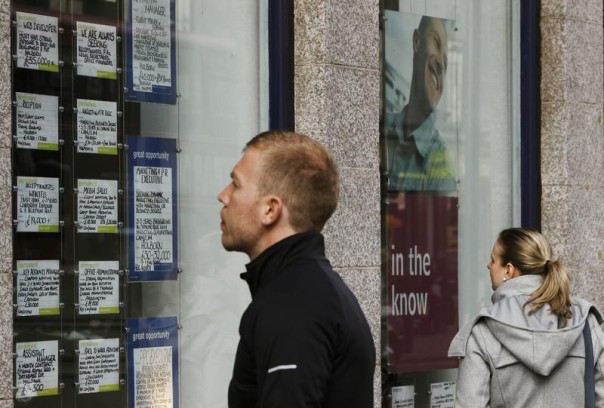Government Grants
Business Grants
Home Owner Programs
Federal Programs
About Us
Drug-Free Communities (DFC) Support Program-New
The Executive Office of the President, Office of National Drug Control Policy (ONDCP), and the Department of Health and Human Services (HHS), Substance Abuse and Mental Health Services Administration (SAMHSA), Center for Substance Abuse Prevention (CSAP) are accepting applications for Fiscal Year (FY)
2019 Drug-Free Communities (DFC) Support Program grants.
By statute, the DFC Support Program has two goals:
1.
Establish and strengthen collaboration among communities, public and private non-profit agencies, as well as federal, state, local, and tribal governments to support the efforts of community coalitions working to prevent and reduce substance abuse among youth*.
2.
Reduce substance abuse among youth and, over time, reduce substance abuse among adults by addressing the factors in a community that increase the risk of substance abuse and promoting the factors that minimize the risk of substance abuse.
*For the purposes of this FOA, “youth” is defined as individuals 18 years of age and younger.
The DFC Support Program was created by the Drug-Free Communities Act of 1997 (Public Law 105-20).
This announcement addresses Healthy People 2020 Substance Abuse Topic Area HP 2020-SA.
2019 Drug-Free Communities (DFC) Support Program grants.
By statute, the DFC Support Program has two goals:
1.
Establish and strengthen collaboration among communities, public and private non-profit agencies, as well as federal, state, local, and tribal governments to support the efforts of community coalitions working to prevent and reduce substance abuse among youth*.
2.
Reduce substance abuse among youth and, over time, reduce substance abuse among adults by addressing the factors in a community that increase the risk of substance abuse and promoting the factors that minimize the risk of substance abuse.
*For the purposes of this FOA, “youth” is defined as individuals 18 years of age and younger.
The DFC Support Program was created by the Drug-Free Communities Act of 1997 (Public Law 105-20).
This announcement addresses Healthy People 2020 Substance Abuse Topic Area HP 2020-SA.
Agency: Department of Health and Human Services
Office: Substance Abuse and Mental Health Services Adminis
Estimated Funding: $18,750,000
Office: Substance Abuse and Mental Health Services Adminis
Estimated Funding: $18,750,000
Obtain Full Opportunity Text:
Drug-Free Communities (DFC) Support Program-New
Additional Information of Eligibility:
Eligible applicants are community-based coalitions addressing youth substance use that have never received a DFC grant.
Statutory Eligibility Requirements, written into the DFC Act, are inherent in the language of the DFC Support Program.
Applicants should refer to Table 1: Statutory Eligibility Requirements, which contains a summary of the minimum documentation applicants must provide to meet these criteria.
The table also specifies evidence required and where to place it in the application (e.g., as an attachment, in the Project Narrative, or in the Budget Narrative).Failure to meet any single statutory eligibility requirement will cause the application to be deemed ineligible; in such case it will not move forward to peer review.
Should your application fail to meet the eligibility requirements, the person listed as the Business Official on the Application for Federal Assistance (SF-424) will receive a letter stating why the application was deemed ineligible.
No additional information may be added to an application after the application deadline.
Final authority lies with the DFC Administrator to determine the eligibility of an application.NOTE: Coalitions that have already received 10 years of DFC funding are not eligible to apply for this grant.All DFC applications will be jointly screened by ONDCP and SAMHSA to determine whether an applicant meets all the DFC Support Program Statutory Eligibility Requirements identified in Table 1.
In addition, the non-profit status of the legal applicant (if applicable) will be verified along with its ability to fiscally manage federal funds.
Applications submitted by eligible coalitions that demonstrate they meet all requirements will then be scored through a peer review process according to the evaluation criteria described in the Application Review Information of this FOA.
Each year, DFC recipients must demonstrate compliance with all of the Statutory Eligibility Requirements to be considered for continuation funding.A DFC legal applicant (an organization applying on behalf of a coalition, the coalition, or the applicant coalition) must reside within the United States and/or the U. S. Territories.
The intent of the DFC Support Program is to fund coalition activities in the United States and does not authorize the funding of organizations or activities outside the United States.
Full Opportunity Web Address:
https://www.samhsa.gov/grants/grant-announcements/sp-19-005
Contact:
Agency Email Description:
DGM@samhsa.hhs.gov
Agency Email:
Date Posted:
2019-05-08
Application Due Date:
Archive Date:
2019-08-07
Follow @topgovtgrant
Social Entrepreneurship
Spotlight
Change in the World of Work and Enterprise: Get Young People Into Work

The position young people are dealt with can be complex, and yet the entire economic system is still focused for an age that’s almost gone astray. The solution? Promoting social enterprise and getting these young people integrated into work.
Nonprofit Jobs in Alabama
Fundraising & Development Jobs
Social Services Employment
Substance Abuse Jobs
Program Director Jobs
Social Services Jobs

